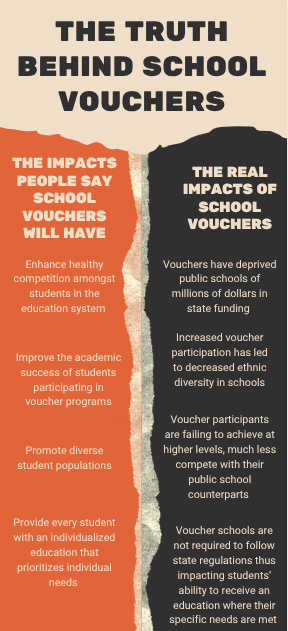Technology has become such an integrated part of our lives that it could almost be considered part of our entity. People have become inseparable from their electronics, specifically our cell phones. As a result, many phone and app designers have made it so our phones not only provide useful services like communication and entertainment but also monitor aspects of our life like our health and our habits. This information can help us make changes to improve our life. But is it an invasion of privacy? To investigate I downloaded some of these apps to see what their effect on my life was.
The first app I tried was called “Good Morning.” It is an app designed to monitor the sleep patterns of the user by tracking how much you move around at night. It has lots of options and setting you can adjust, such as a goal of how much sleep you want each night and what type of white noise you want to fall asleep to. The most useful setting, though, is the alarm clock setting. Let’s say I need to wake up by 6:30 am. I set my alarm for 6:30, and the app will monitor your sleep, and the alarm will go off when you are in your lightest stage of sleep within 30 minutes of the time the alarm is set. I didn’t really learn anything new about myself by using the app. I already knew I had horrible sleeping habits, and the app simply confirmed this. The only downside of the app is, unlike most alarm apps, you have to remember to set the alarm every night. You can set the app to remind you at night, but when you’re really tired at night, you may not feel like taking the time to set the app.
The next app I tried out was called “EverDrive.” I saw an advertisement for this app online, and as the winner of this year’s worst driver award, I felt this app would help prove I’m not as bad as everyone seems to think. The app records you while you drive, and after you’re done, it gives you a score of 1-5 stars in several categories such as braking, acceleration, banking, and speeding. It then gives you an overall score for the drive. What I love about this app is it’s completely automatic. After you download and setup the app, you don’t have to do anything else. When it senses you are moving faster than a walking pace, it will start recording in the background. I also like how you can change your mode of travel of different trips after you’re done, that way you won’t have someone else’s bad driving count against your score. It also can tell if you use your phone during your trip, which hurts your score. I was also impressed on how accurate the speedometer is, and how it knows almost every street’s speed limit. On the dashboard, it gives you an overall score of your driving from 0-100, as well as other information such as your total scored trips and miles, as well as your driving compared to other drivers in your city and state. You can even compete against other friends using the app.
I don’t think the app did much to improve my driving, but it is interesting to see my driving habits shown to me. For example, I’m actually a pretty good driver, as long as I’m not running late (which is a common occurrence I have to admit.) I’m the best driver in Holland, of the six people using the app, and I’m 950th in Michigan. My overall score right now is 82.1 (which is better than the grade I have in some of my classes.) What I really gained from using the app was the ability to say I’m a better drive than my dad, who scored very poorly because of his habit of speeding on the freeway.
Finally, I downloaded an app called MyFittnessPal to track my health. When you set up the app you give it your height, weight, and activity level. You then tell it whether you are trying to gain, lose, or maintain your weight. Based on this, it gives you a calorie goal. One great feature of the app is its ability to be paired with many different devices and apps to more accurately track your health. The app is by Under Armor so it initially recommends pairing with products like the UA HeathBox or the UA Band, but it can be paired with most health tracking devices. I didn’t own any of these devices, so I downloaded the Google Fit app. The app automatically tracks my steps. The cool part is I can pair these two apps, and they share their information. For example, the calories I burn walking and running are recorded by the Google Fit app and are automatically subtracted from my calorie intake in the MyFittnessPal app.
I really liked being able to see my food and nutrition intake daily. I actually learned a lot from it. For example, I learned I am not getting nearly enough calorie, often coming short by almost 1,000 calories. Despite this, I still go over my recommended intake of fat, sugar, and sodium. I had always thought I ate pretty healthy, but I found out some food I thought of as healthy had a ton of sodium or sugar. The thing I dislike most about this app is trying to log my food. The app has several features that make it easier, like the ability to scan the barcode or pull a restaurant’s menu, but it’s still really hard to log what food you’re eating. It’s hard to know if you’re putting in the right food, especially if it’s something like a homemade meal, and it’s hard to remember to log my food on the weekends, when I don’t always have regular mealtimes, even with the apps reminders. That’s the main reason I gave up on the app after a week.
While I was using the app I never felt my privacy was being invaded. I had to chose to download the apps, and the app has to have my permission to take any of my data. Most of the apps I had to continuously update them myself, and the ones that ran automatically still gives me updates on when they are recording. When I was looking for a health app, though, I did notice some people were upset with the health apps that come pre-installed on their phones. Both Samsung and LG smartphones come with health apps that come with the phone, and can’t be uninstalled. Some people felt this was an invasion of their privacy that the app was counting their steps without a way to disable it. For the most part, though, current apps aren’t much of a privacy risk. Where this may become an issue is when phones are able to keep a closer eye on us. Already devices like Fitbit can track heart rate, blood pressure, geolocation, and a variety of other factors. But as long as we control whether we want to use these devices, we shouldn’t have to worry about our privacy being invaded.












